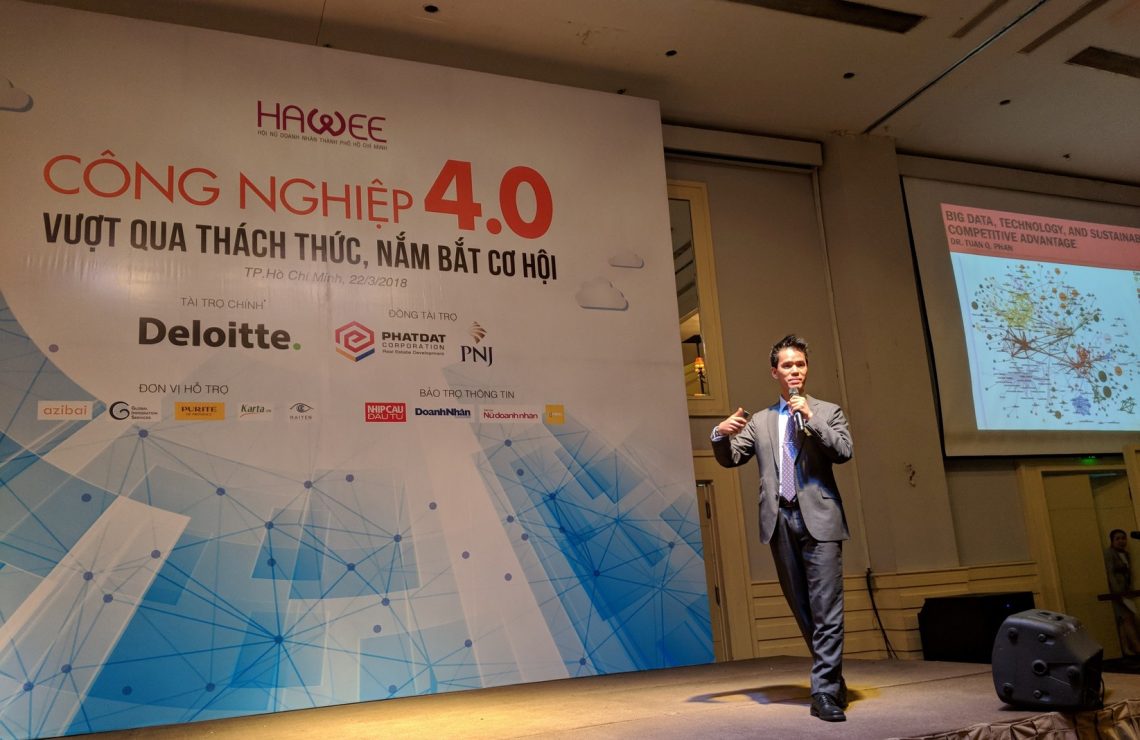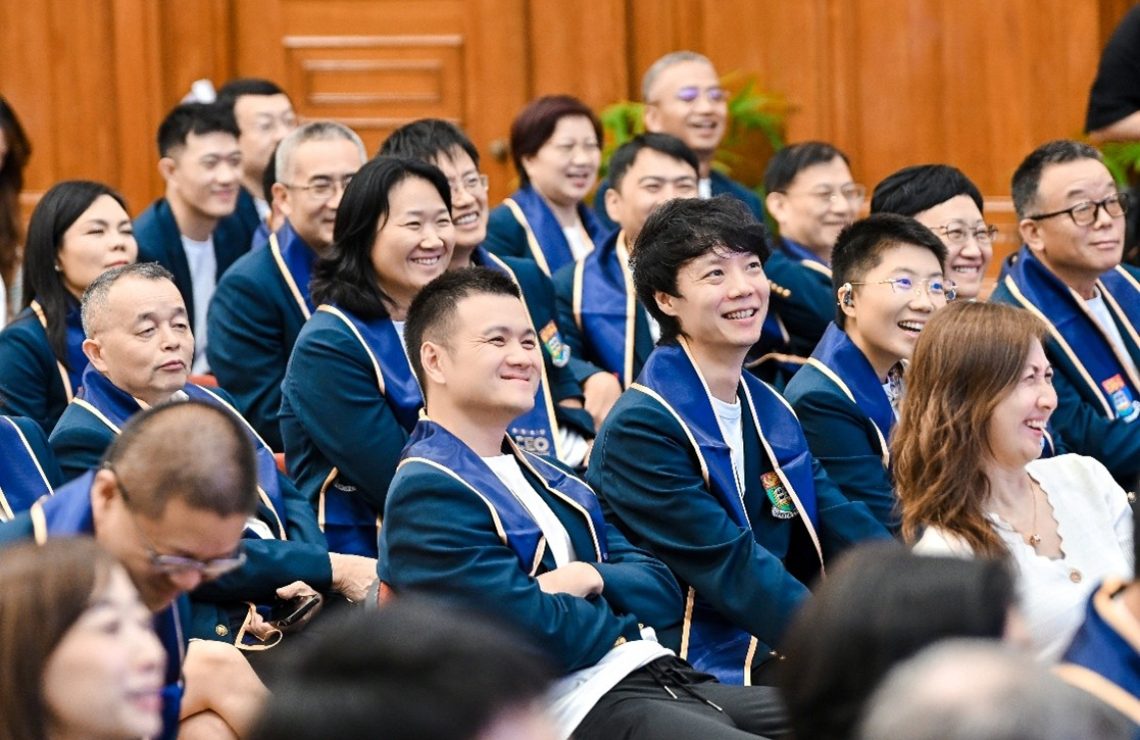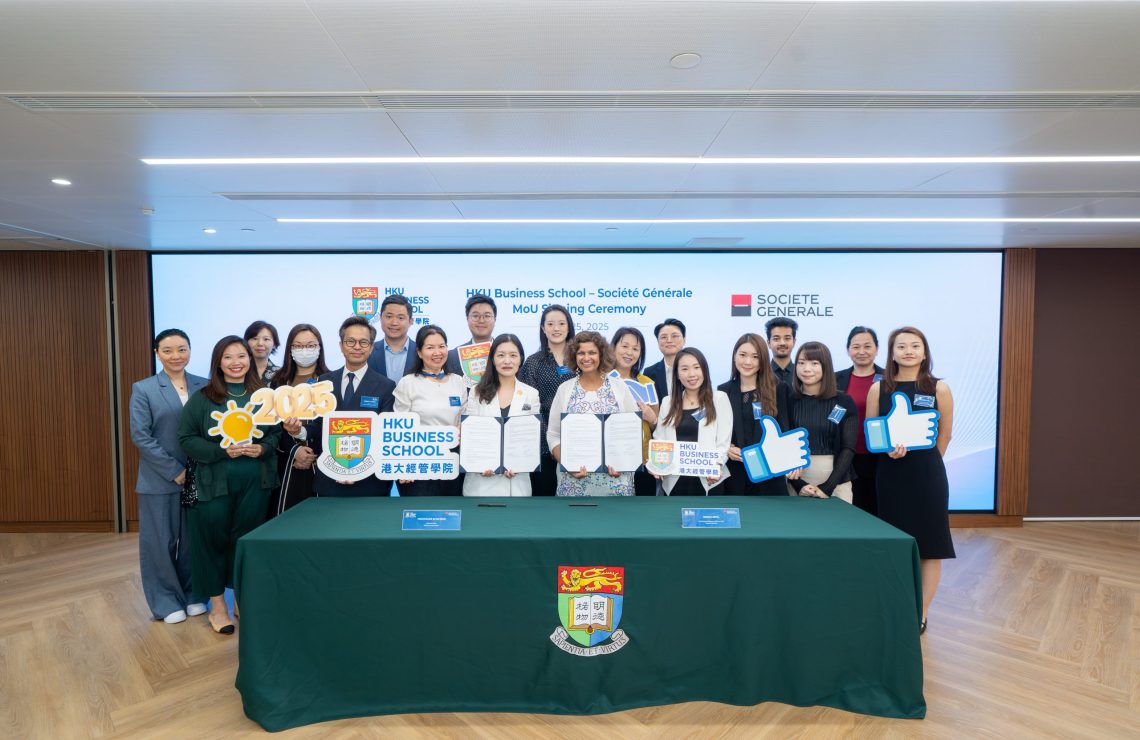
The All-Rounded Talent: Dr. Tuan Quang PHAN
The ultimate multitasker
While Dr. Phan asserts that he is never in the academic rat race, his dedication and interests towards science and technology have rewarded him the opportunity to major in computer science and electronics engineering at MIT with concentrations in business and economics. Excellent academic performances, mastery over technical skills, has brought Dr. Phan with other like-minded individuals to establish a start-up in software engineering during his sophomore years. Dr. Phan’s multitasking ability is very impressive. Few could manage to study three majors, run a start-up, prepare for job interviews, and win ball-room dancing competitions in tandem.
“I am a person motivated by interest. I do things that I am interested in, therefore I never have problems with time management.”
From the private sector to the academia
While Dr. Phan’s start-up had produced a state-of-the-art 3D graphics drawing software, the market response was lukewarm. At the start-up, he fell in love with applying his technical skills to business problems. After a stint in the corporate world, Dr. Phan realized that business problems can be more complicated than engineering problems. Engineering problems are usually placed in a right-or-wrong dichotomy. They are well defined, and an absolute answer could be obtained. Business problems, on the other hand, are amorphous. Depending on how you define it, the problems can be addressed. Otherwise, it can be intractable. While data are increasingly available, it is critical for business leaders to place it into context and include other hard-to-observe factors including consumer psychology, endogenous economic effects, and sundry processes.
This discovery has encouraged Dr. Phan to become a marketing consultant to look at intangible problems with a quantitative lens. After taking a PhD in marketing and accidentally falling in love with knowledge creation, Dr. Phan has decided to become a marketing scholar.
Consultation works in Hong Kong
In addition to teaching and research, Dr. Phan also engages with industry leaders in Hong Kong. His duty is to consult local companies from different sectors, mainly through marketing, education, social media, Big Data, AI and Fintech. Dr. Phan will assist them to incorporate big data, AI, and digital technologies into their strategies. Furthermore, he will advise them on the development of micropayments and micro-lending technologies.
Knowledge sharing – Fintech Development in Southeast Asia & Human adaptability
On Jan 2, Ant Finance, a subsidiary of Alibaba has applied for a virtual bank license in Singapore. Given that local students have little understanding of the Southeast Asian financial market and they are generally enthusiastic about Fintech, we have taken this opportunity to seek Dr. Phan’s knowledge. Moreover, as Dr. Phan is an expert in social networks, youth mental health, and education, we would also like to seek his advice on social problems created due to the lack of face-to-face communications with the rise of the digital era.
First of all, will virtual banks replace traditional banks?
In the realm of virtual banking, there are Fin-tech firms and Tech-fin firms. Fintech firms are originally technology companies that have eventually transformed into financial institutions. For example, while Ant Finance was originally responsible for the E-commerce of Alibaba, it has eventually become a virtual bank due to the development of Big Data technologies. Tech-fins are financial institutions that have been modernizing themselves with the latest financial technologies. Although they have different starting points, they share the same destination.
Dr. Phan believes that competition between traditional financial institutions and Fintech firms is unlikely. Fintech firms are very specialized, mostly in the fields of micro-lending and payment services, a niche where traditional financial institutions may not have a comparative advantage. On the other hand, traditional financial institutions provide a package of general services to the market. They handle deposits, sell investment plans, and issue huge loans for businesses. Dr. Phan believes that even if the Fintech firms so desire, they are unable to challenge traditional financial institutions as they are unable to take deposits. This is a point made by the CEO of Citibank, to be one of the mistakes Citibank had made in previous years. Without sufficient retail chains to collect cash (deposits), Citi has a hard time to get entrenched in the Asian financial market. While North Asian countries are heading towards a cashless society, the Southeast Asian countries are still very cash-based.
An overview of the Southeast Asian financial market
Dr. Phan said that the Southeast Asian financial market is very fragmented. Judging from the market size and population, the VIPs of the region are Vietnam, Indonesia, and the Philippines. However, their progress of development in Fintech and their legal framework on financial laws varied greatly. While most of the Southeast Asian countries are still very cash-based, things are changing in Indonesia. In an unofficial survey, Dr. Phan realized that 80% of the Indonesian population would use Gojek as a digital wallet, implying that Fintech development is progressive in Indonesia, whereas the development of Fintech in Vietnam will be slower, as the threshold to attain virtual banking license is high. In Cambodia, the emergence of Fintech loan sharks has made a lot of citizens seriously in-debt.
The development in Singapore is a totally different story. Singaporeans on average have around half a dozen credit cards and they are open to Fintech. However, Dr. Phan is of the opinion that E-payment is not going to challenge the supremacy of credit cards in Singapore. This is mainly because the benefits given by E-commerce are incomparable to credit card companies in the present.
When asked whether there is a bubble in the Fintech sector, Dr. Phan is convinced that as the banking industry is more cautious nowadays, another dot-com bust is unlikely. Valuing factors such as sustainable cash flow and healthy credit records more than business ideas may slow down the growth of technology, but it creates a more stable investment environment.
The adaptability of humans and the necessity to salvage those who failed
The lack of face-to-face communication and the development of online technologies have enabled oneself to isolate themselves in niches of the internet, creating cynical communities such as the Incels (involuntary celebrated). However, putting the issue in a bigger scope in the history of mankind, the development in communication technologies have always created better than harm.
Thousands of years ago we have to ride a horse in order to traverse geographical boundaries and carry out long-distance communication. Now, with the help of the internet, boundaries of space and time are broken and communication costs are greatly reduced. Dr. Phan had worked with data scientists on Facebook and other big technology companies through the years and has observed how people’s attitude and behavior towards social media has changed over time. For example, when Facebook was first introduced, people are very open about their private life online. After realizing the detrimental effects such as identity theft, data loss, and social media addiction disorder, governments have started to regulate their usage and grow awareness of online privacy. What politicians and academics can do is to educate citizens more systematically on issues such as online privacy and security.
Way forward
Dr. Phan believes that Hong Kong is experiencing an awakening. The city has realized that she is more than an IFC but also a major regional and global research and R&D hub. However, the city is seriously lagging behind in the implementation of new technologies in business operations and daily life. Dr. Phan suggests that Hong Kong could learn from the USA, China, Europe, and Singapore in its success to be technologically developed.
For example, the success of Singapore is credited to its government’s willingness to provide support to upgrade all its sectors. Initiatives such as labor force upskilling, upgrades on the company’s systems and business models are carried out with full support. Dr. Phan recommends the Hong Kong government to take a two-pronged approach. On one hand, the education system should put a heavy focus on information technologies and AI since primary education. On the other hand, free or subsidized short-term non-degree programs for the labor force in order to make them compatible with the introduction of high-end production technologies. It is only when the norm of learning technologies is formed, the city would have the momentum to catch up with its neighbors.







